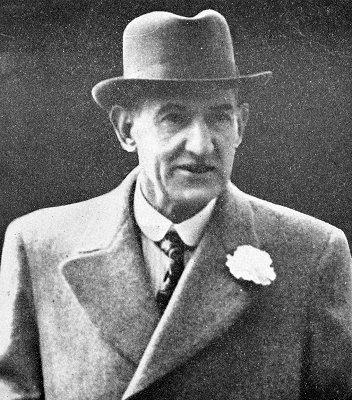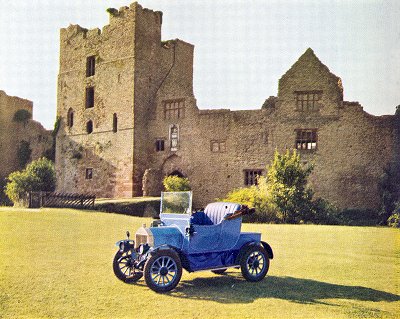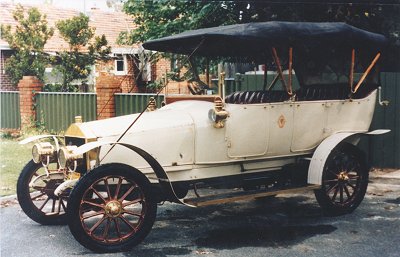| The Early Years My father, Charles Aaron Weight, was born on 28th August 1875. His
family lived at 35a Chester Terrace, Eaton Square, London and they ran a
newspaper shop. There were four brothers, Charles, Alfred, Harry and
Leonard.
My father was largely self-educated and taught himself shorthand. After
teaching at Pitman's College, he obtained a job with Bell’s Asbestos
Company Limited and worked his way up rapidly, becoming the company's Midland
representative, covering the Cannock Chase, Hednesford and Stoke on
Trent coalfields. He lived at 184 Waterloo Road, Wolverhampton.
On 19th August, 1912, in Hednesford, he married Constance May Blagg
(born 27th December, 1889), who had two brothers, George and Fred Blagg.
They were ironmongers and builders' merchants. I, Charles G. Weight, was
born on he 29th January, 1914.
|
|

Charles Aaron Weight. |
I do not have a complete account of my father’s business activities, but
I do know some features of it. At some point my Father decided to leave
Bell’s Asbestos and seek his own fortune. In 1905 he started operating
three canal narrow boats, collecting charcoal from Netherton and
delivering it to Ettingshall. This enterprise came to a sudden end in
1910 when, in the course of widespread industrial unrest in the country,
his three barges were sunk.
On 6th April, 1910 he bought 2 acres of land at Chillington
Fields from the Chillington Iron Company, and Sir Alfred Hickman, for £68.
10s. 11d..
In 1914, when my Father was 39, he joined up, serving in Egypt and
Palestine and was not discharged until 5th March, 1919. |
| In that year he, and two men, Harry Goodhead, and Jack Rhodes, started a
business making the pipe and boiler insulation material known as "monkey
muck". This was made out of the "Toccio" dirt, (which was abundant on
his site and in the locality, it being the waste material from the
surface coal gin pits), mixed with asbestos and gypsum. By 1920 vast quantities of war surplus material were being auctioned
off by the Government and my Father purchased all sorts of merchandise
cheaply and resold it, after any necessary repairs, reconditioning and
re-packing and, sometimes, re-working. For example he bought thousands
of aeroplane propellers which he made into fire fenders and mantelpiece
clocks. And he bought vast quantities of piano wire, which he had woven
into ⅜ of an inch flexible wire rope of the highest quality. |
| In 1922 my Father spotted another opportunity when the Briton Car Company
went into liquidation.
He bought it and moved everything to Chillington Fields,
where he continued production from the available parts and
components, eventually selling about 600 vehicles. |

A Little Briton. |


A Briton car owned by Eric Langton, Applecross,
Western
Australia. |
In 1924 my Father set up the Staffordshire Engineering and Boiler
Covering Company Limited, which carried on his boiler and pipe insulation
business.
Its name was formally changed to SEBCO Limited in 1934. |

 |
|
 |
|
Return to
the index |
|
Proceed to The
1920s and 1930s |
|